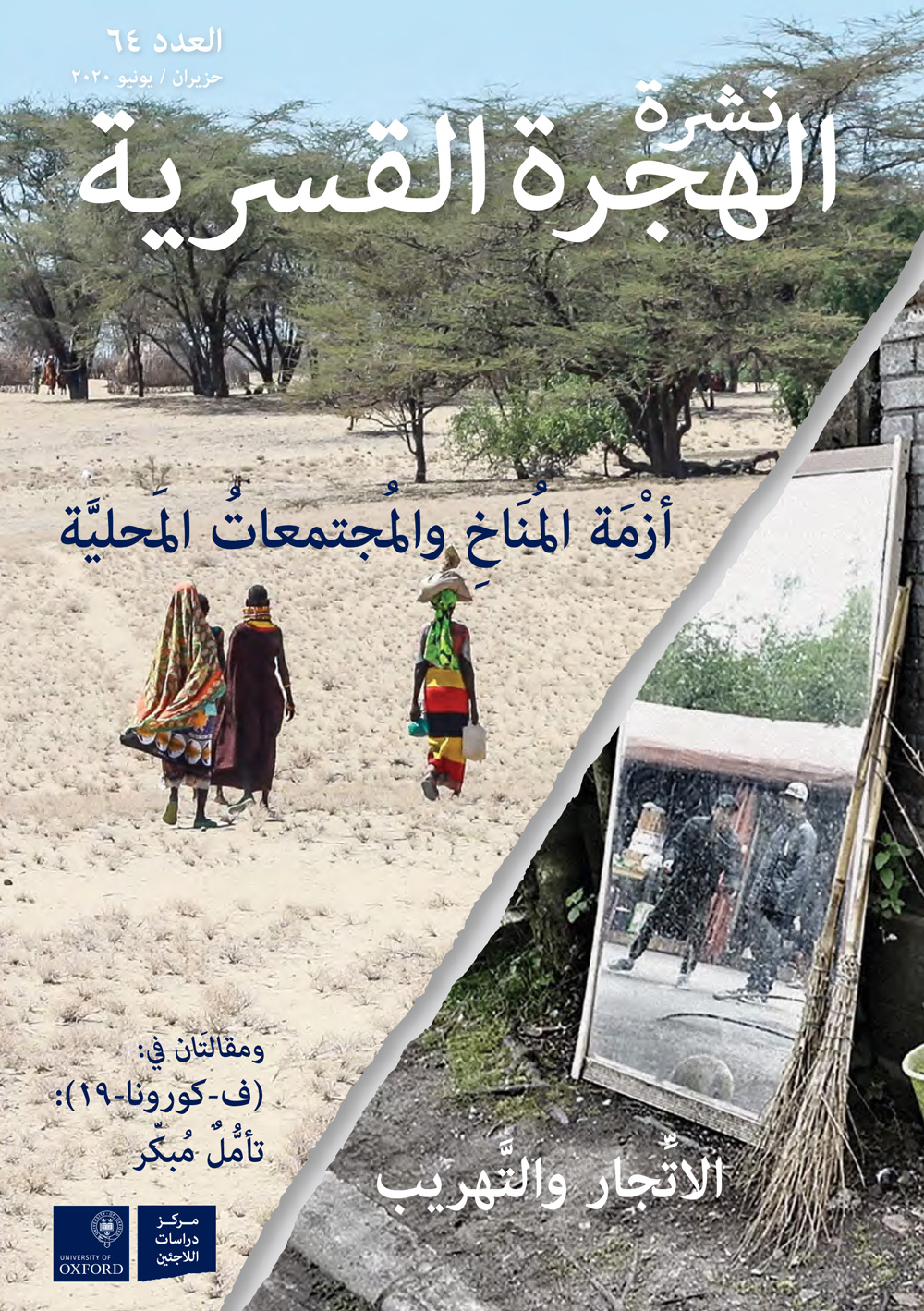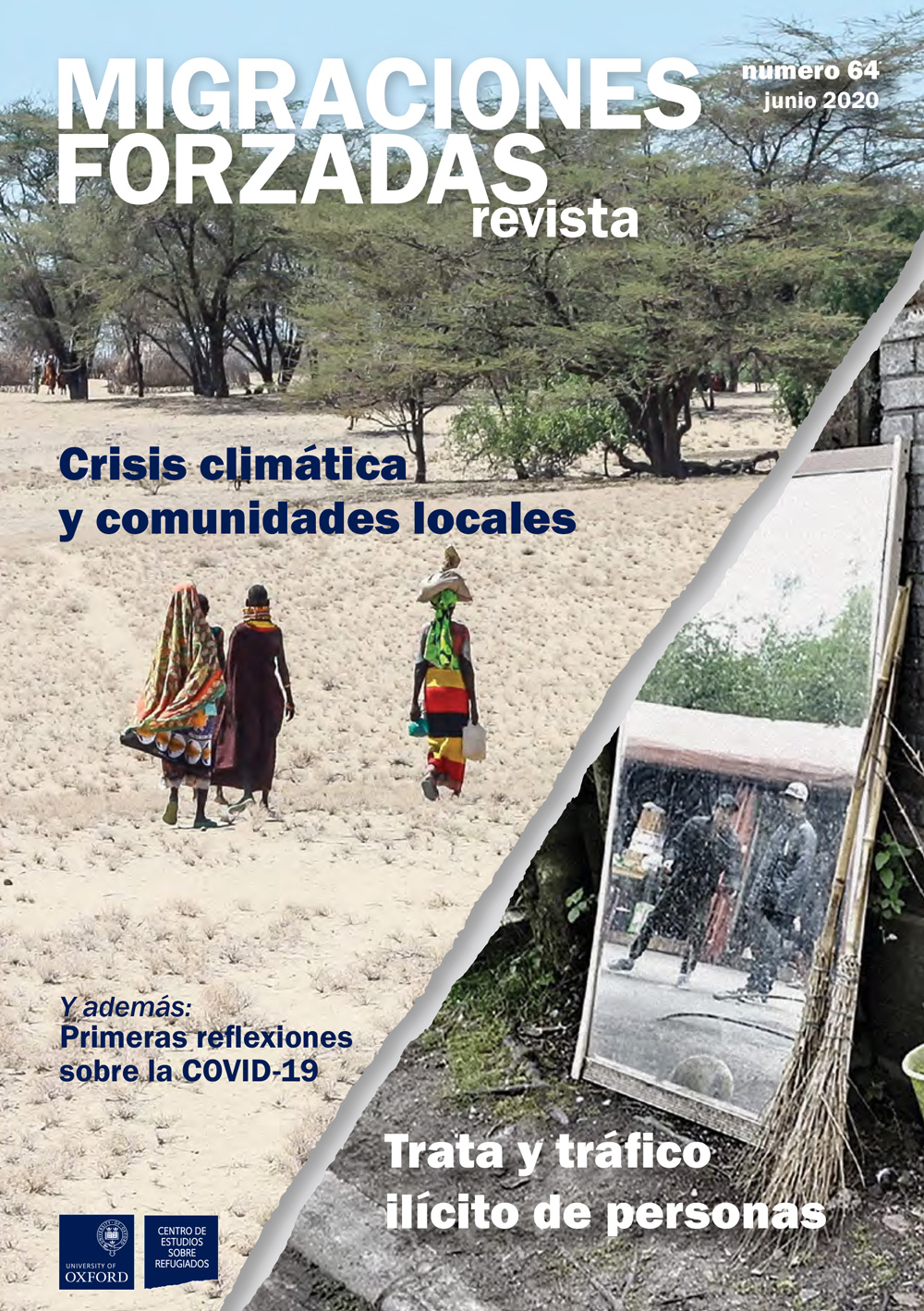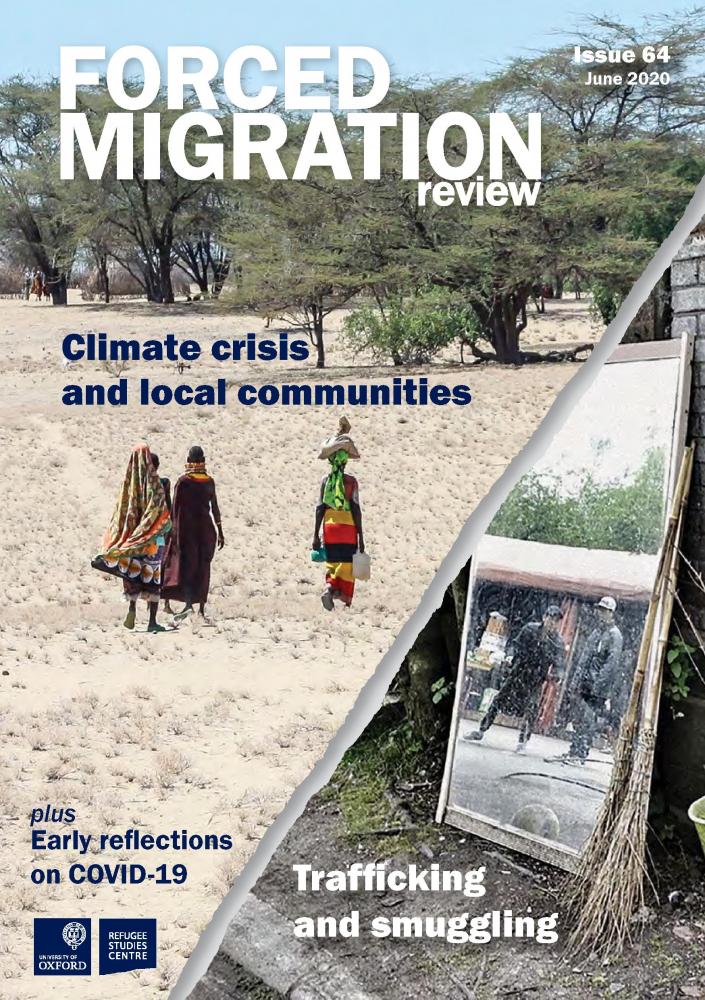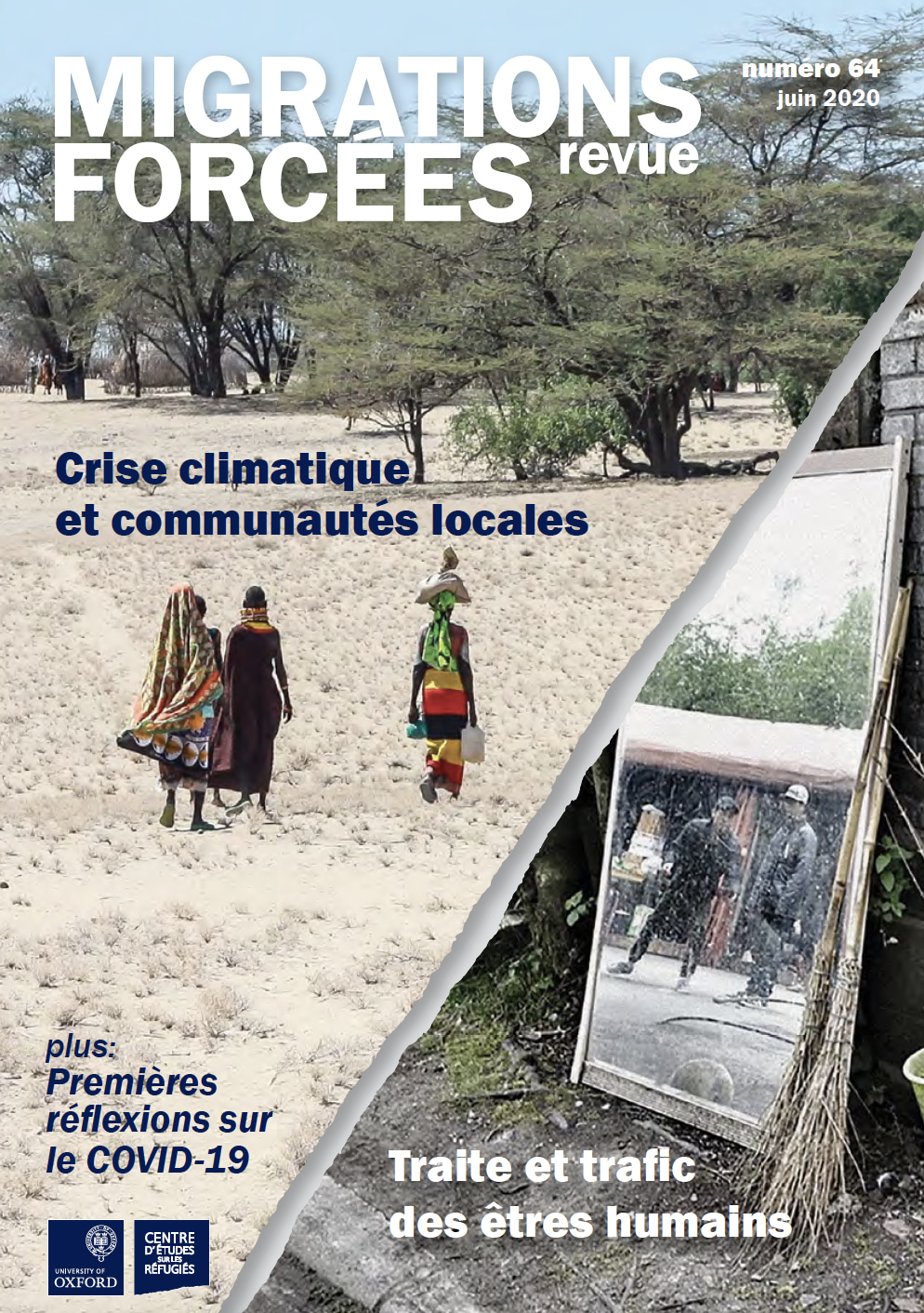Lessons from internal climate migration in Mongolia
The Centre for Rural Development at Berlin’s Humboldt University recently conducted a study on the adaptation of rural livelihoods to structural and climatic changes in western Mongolia, and found that migration is one of the most common strategies implemented in…
From the editors
This issue will go online and to print while the UK is still gradually easing its lockdown. We know that many of our readers will be living and working in very difficult circumstances, and we extend to you our warmest…
Environmental challenges and local strategies in Western Sahara
Much of the attention paid to the Western Sahara conflict, particularly from the perspective of refugee and forced migration studies, has understandably focused on the Sahrawi refugee camps near Tindouf, Algeria. These camps were set up in 1975 following the…
تحدّياتٌ بيئيّة وإستراتيجيّات محليّة في الصحراء الغربيّة
يُولَى نزاع الصحراء الغربيّة اهتماماً خاصّاً، ولا سيّما من زاوية نظر دراسات اللاجئين ودراسات الهجرة القسريّة، وقد رُكِزَ أكثرُ هذا الاهتمام، رَكْزاً مفهوماً سببه، في مخيّمات اللاجئين الصحراويّين قُرْبَ تندوف في الجزائر. نُصِبَت هذه المخيّمات في سنة ١٩٧٥، بعد اندلاع…
Los retos ambientales y las estrategias locales en el Sáhara Occidental
Como es comprensible, gran parte de la atención prestada al conflicto del Sáhara Occidental, en especial desde la perspectiva de los estudios sobre refugiados y migraciones forzadas, se ha centrado en los campos de refugiados saharauis próximos a Tinduf (Argelia).…
Défis environnementaux et stratégies locales au Sahara occidental
L’essentiel de l’attention portée au conflit dans le Sahara occidental, surtout du point de vue des études sur la situation des réfugiés et de la migration forcée, s’est concentrée, à juste titre, sur les camps de réfugiés sahraouis à proximité…



